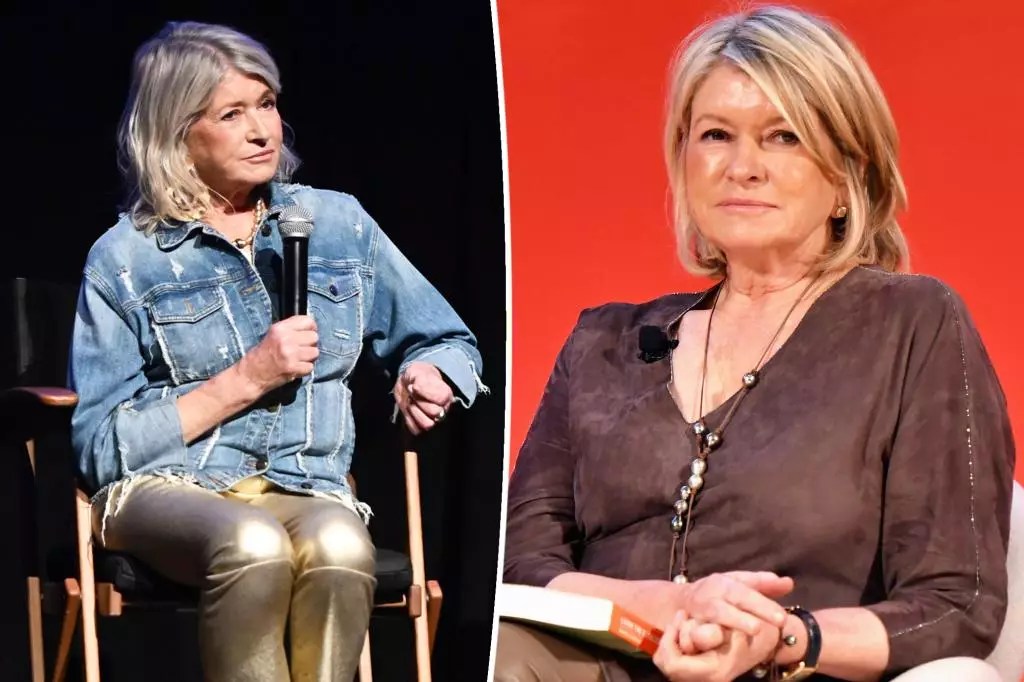In the ever-evolving landscape of the entertainment industry, high-profile personalities often find themselves at the center of controversies that can either propel their careers forward or send them tumbling into public scrutiny. One such personality, Martha Stewart, recently stirred the pot with her candid criticism of her own documentary, “Martha,” which is set to premiere on Netflix. This incident has not only raised eyebrows but also brought to light the intricate dynamics that often govern collaborations between media giants and iconic figures.
The Fallout from the Premiere
Following the film’s debut at the prestigious 2024 Telluride Film Festival, whispers of discontent began to echo in the hallways of Netflix. Sources suggest that the streaming platform was far from pleased with Stewart’s blunt remarks about the film, labeling it as “lazy” and not representative of her true self. The irony, of course, lies in the fact that Netflix facilitated her attendance at the festival through a private jet, indicating that the relationship remains somewhat complicated—an interplay of dependence and disdain.
Stewart’s Remarks: A Fine Line Between Honesty and Discretion
Martha Stewart, at 83, has undoubtedly accumulated a wealth of experience navigating the treacherous waters of fame. However, her admission during the 2024 Retail Influencer CEO Forum—that the documentary’s narrative was skewed towards her infamous legal troubles—raises pertinent questions about artistic integrity and the delineation of personal branding. Stewart noted that the film’s director, R.J. Cutler, did not accommodate her requests for revisions, which adds another layer of tension to an already complex relationship.
Stewart’s candidness, while refreshing, also contradicts her previous ethos of maintaining discretion in public discussions. She effectively treaded a narrow line by stating that discussing dislikes in such a public forum is not “good business,” yet she chose to voice her concerns nonetheless. This juxtaposition highlights an internal conflict that could signify either a strategic move or a moment of vulnerability.
Stewart’s longstanding struggle with her legal history—a painful chapter marked by a 2004 conviction related to insider trading—remains a pivotal aspect of her narrative. Her criticism of the documentary implies that it highlights this unfortunate episode rather than focusing on her successful career as a business mogul and lifestyle icon. By calling attention to the excessive focus on her “stupid trial,” Stewart is not only defending her image but also reclaiming her narrative—a powerful stance for someone who has faced considerable backlash in the media.
Despite the tumultuous feedback surrounding her documentary, there appears to be a silver lining. Stewart mentioned during her remarks that Netflix has expressed interest in future collaborations. This poses an intriguing question: could another project offer her a more accurate platform to share her multifaceted story? It’s a tantalizing possibility that alludes to the potential for growth and reconciliation between Stewart and the streaming giant.
In sum, the unfolding scenario involving Martha Stewart and Netflix serves as a compelling case study in the complexities of celebrity culture. It encapsulates the tension between public persona and private truth, while also illuminating the challenges that creative partnerships often face. As audiences await the premiere of “Martha,” one can’t help but wonder how this intricate web of relationships will continue to evolve in the future. The incident certainly raises questions not only about Stewart’s legacy but also about the larger implications for how stories are told in the age of digital media.







Leave a Reply